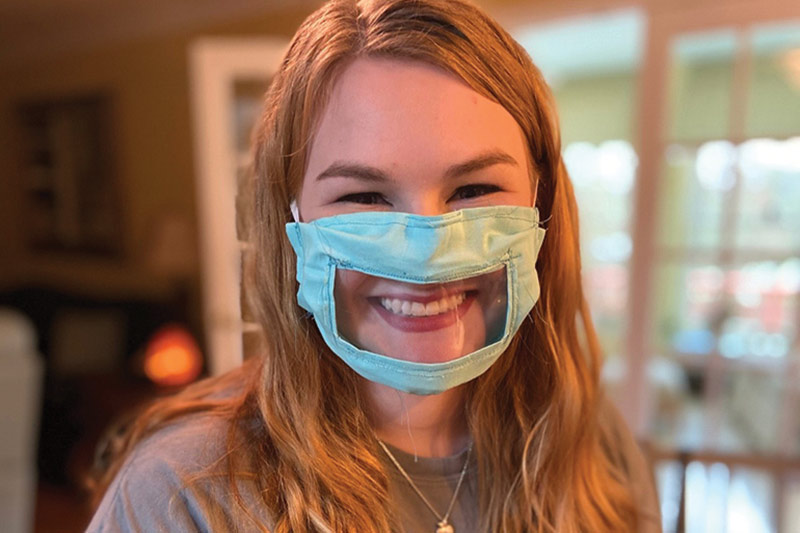 Dear Ms. Specs,
Dear Ms. Specs,
You’ve given some great advice about greeting patients, managing expectations and superior customer service. Can you offer advice for instances when communication with a patient is difficult, for example, when there is a language problem or disability? I worry that the patients may not adequately understand what to expect and that they will be less likely to return if there’s a problem.
Concerned in Concord

Dear Concerned in Concord,
Thank you for your excellent question! Yes, communication can be challenging, even in everyday circumstances. When a patient has a language barrier or a hearing impairment, it increases our need to be concise and clear.When there is a language barrier, technology can be our friend. There are many apps available to help translate different languages that can ease the encounter and help the patient feel understood. When we are talking about technologies that may not translate easily, Ms. Specs is a big fan of making diagrams and showing samples. For example, have a pair of SV glasses in a higher power in CR-39 with no AR coating, and the same Rx in the same frame in a high index material, aspheric design with AR coating. This could be done with two pairs, or one pair with the different options in each lens. This simple strategy can convey the big differences in cosmetics and optics. When there is a hearing impairment, we must get more creative. I would suggest while we are still wearing masks in health care, that each optician have a mask with clear plastic in front of the mouth. This mask could be kept in the office and used with patients who rely on lip-reading. Lip-reading is common not only for those with hearing-impairments, but also for the elderly.
The next thing that comes to mind, is to have a whiteboard with erasable markers to communicate with the very important person in front of us. Since Ms. Specs is super conscientious about manners and being polite, I couldn’t help but wonder: Is there a chance that I might offend a hearing-impaired person if I pull out a small whiteboard with markers? As I pondered this, I thought when in doubt, do the research!
I live in a condo building with a few elderly residents, some with hearing impairments. They agreed to let me interview them for this column. So, Dear Readers, may I introduce Molly and Nancy.
Molly is a delightful person who also has Ushers Syndrome. Cochlear implants have helped her to regain some hearing, however, according to her, she sometimes hears voices as “cartoon like” with slight beeping sounds. For these reasons, it is important to articulate slowly and clearly. I asked Molly if she would feel offended if an optician pulled out a small whiteboard with markers to communicate, and she told me: “As long as the person treats me with respect, I am fine with it. I get offended when a person treats me as ‘less than.’ In my experience, sometimes deaf people are treated like they have other deficiencies, when the reality is, that our brains and understanding are fine; it is just that we cannot hear.”
Since patients like Molly have a smaller field of view, it is important to write neatly, as they must move the whiteboard around to position it in front of their limited central vision. I have made her glasses for comfort, not for vision. That is, with specialty tints and coatings to ease uncomfortable glare and extreme outdoor light. And since having fun is essential, Ms. Specs recommends using different colored markers with the whiteboard, even adding smiley faces and hearts! Yes, we can be science-minded and goofy at the same time! Nancy also gave me sage advice that I am happy to share. She stated that recently, a doctor’s office left a voice message to confirm an appointment or for another reason, and they talked so fast, she could not understand a word of the message. Again, speaking slowly and clearly is a simple solution to this problem.
So, Dear Readers, going the extra mile in these situations lets our cherished patients know that we are here to help, regardless of communication challenges. These practices will elevate your Optician Rock Star status while showing empathy and compassion for others.
See Well and Be Well,
Ms. Specs in the City
Laurie Pierce, ABOM
Do you have a question for Ms. Specs? Please send your question to [email protected], and we may feature it in a future column.













